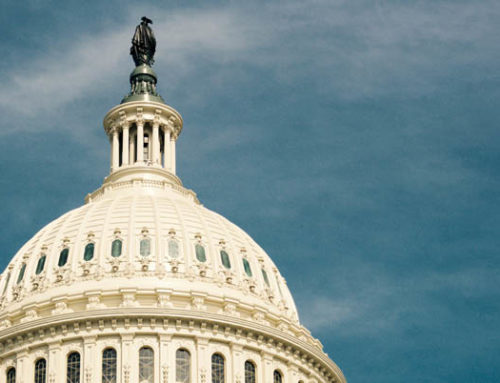The hot summer months, particularly July and August are typically a slower period politically, due to family travel, state legislative conferences, and many members focusing on their re-election. Further contributing to the lack of any big, state policy news, is that we are in a presidential election year, where the Democratic and Republic conventions tend to dominate legislator’s time and media coverage.
The General Election is months away, but transition in the Legislature continues as retirements have led to special elections in both chambers since last legislative session. Most recently on July 16th, State Rep. Borris Miles (D-Houston) won the nomination to replace Rodney Ellis on the election ballot for the 13th, putting him on track to win the Houston-area seat in November. Miles drew the support of a majority of precinct chairs who gathered to pick a successor to Ellis, who left the Senate to become a Harris County Commissioner. Democratic Precinct chairs plan to meet August 6th at the district’s executive committee meeting to pick Miles’ replacement on the ballot for House District 146. There is also a Special Election in San Antonio (HD 120) to replace retiring State Representative, Ruth Jones McClendon.
In terms of other issues of interest, please see below some highlights of the last week, including an interesting overview of the status of Texas’ litigation against the federal government, a contentious forecast on eminent domain and high speed rail, an update on the HD 120 race, and an interesting ballot initiative in California that could gain traction in Texas, depending on the election. After review, should you have any questions or require further information, please do not hesitate to let us know.
TEXAS VS. THE FEDS – A LOOK AT THE LAWSUITS
Since President Obama took office in 2009, the state of Texas has sued his administration at least 42 times. Former Texas Attorney General and current Gov. Greg Abbott filed 31 of those lawsuits. For Texas, there have been several cases in the win, with a reported 12 losses, nine cases withdrawn and 14 pending.
In the state’s most recent win, a split U.S. Supreme Court decision struck down Obama’s executive order that would have provided relief from deportation to millions of people. Many high-profile cases are still making their way through the legal process, including lawsuits over new limits on smog, directives on bathroom use in public schools and climate change policy.
The Justice Department sued Texas in 2013 over its controversial voter ID law, and the U.S. 5th Circuit of Appeals largely agreed with the challenge. The appeals court’s July decision is by no means final, with Texas likely to appeal to the U.S. Supreme Court.
Lawsuits Withdrawn:
- Voter ID Law: Texas sued the Department of Justice, seeking court approval of its law to require voters to provide a photo ID at the polls.
- Redistricting Plan: Texas sued the U.S. Department of Justice, seeking court approval of its plan to redraw its congressional and legislative voting districts.
- Women’s Health Program: Texas sued the US. Department of Health and Human Services, which refuses to fund the state’s Women’s Health Program because of a Texas law that prohibits state dollars from going to groups affiliated with abortion providers.
- Same-Sex Couple Benefits: Attorney General Ken Paxton sued the U.S. Labor Department for allowing federal medical leave benefits for certain same-sex couples.
- Cross-State Air Pollution and Greenhouse Gases: Texas sued the EPA for rejecting the state’s plan to address air pollution that drifts into other states. The EPA had disapproved of the plan because it failed to include steps to follow the recently announced greenhouse gas rule, which Texas was also challenging in court.
- Drilling Moratorium: Texas sued the U.S. Department of the Interior after the department imposed a deep-water offshore drilling moratorium following the Deepwater Horizon oil spill in the Gulf of Mexico.
- Education Funding: Texas sued the U.S. Department of Education after it denied the state’s application for $830 million in education funding.
- Green Completion Rule: Texas challenged the EPA’s new restrictions on pollution from hydraulically fractured natural gas wells.
- ACA Contraception Coverage: Texas along with six other states sued the U.S. Department of Health and Human Services over the Affordable Care Act, aiming to exempt religious organizations from having to subsidize contraception and related services that conflict with their religious beliefs.
Cases Texas has won:
- Obama’s Executive order: Texas and 24 other states sued the U.S. Department of Homeland Security over President Obama’s executive order granting deportation relief for as many as 5 million undocumented immigrants.
- Red Snapper Limits: Texas and Louisiana sued the National Marine Fisheries Services for shortening the red snapper fishing season in federally governed waters off Texas’ coast. Texas argued this was done to unfairly punish the state for lax red snapper fishing regulations in its own waters.
- Flexible Permit Program: Texas and industry groups sued the EPA after it nixed the state’s “flexible permit” program, which asked small or midsize industrial facilities to keep their emissions under a “capped” number.
- Pollution Control Permitting: Texas’ pollution control permitting program lets industrial facilities bypass some burdensome regulations if they reduce their air emissions. After waiting for the EPA to weigh in on the program for years, Texas got a rejection in the fall of 2010, and sued that December alongside one of the state’s biggest power companies, Luminant.
- The Mercury Rule: Texas and a coal plant developer sued the EPA over the agency’s new limits on mercury and other toxic chemical emissions from power plants.
- Pipeline Reporting Requirements: Texas sued the Federal Energy Regulatory Commission over an order that natural gas pipelines in Texas make daily internet posts about their business activities.
- Air Quality Plan: Texas sued the EPA for rejecting the state’s air quality plan that relied in part on the state’s pollution control project permitting program, which the EPA had also rejected.
Cases Texas has lost:
- Cross-State Air Pollution Rule: Texas sued the EPA over regulations introduced that year to address pollution drifting into other states.
- The Endangerment Finding: Texas and industry groups sued the Environmental Protection Agency over the Endangerment Finding, a 2009 decision to regulate greenhouse gases on the basis that they contribute to global warming.
- Qualified Facilities Program: Texas and oil and gas companies sued the EPA over its decision to reject the state’s “qualified facilities” program, which allowed some small or midsize industrial facilities to skip certain steps when seeking environmental permits.
- Affordable Care Act: Texas and 12 other states challenged the constitutionality of the federal Affordable Care Act, claiming parts of the law – including the individual mandate and expasion of Medicaid – exceeded federal authority.
- Sulfur Dioxide Rule: Texas and North Dakota sued the EPA over rules that limited how much sulfur dioxide could be in the air.
- Greenhouse Gas Plan: Texas and industry groups sued the EPA for asking states to submit a plan on how they would follow a new rule that would regulate greenhouse gas emissions from big industrial plants.
- Wise Country Ozone: Texas sued the EPA for adding Wise County, a largely rural county, to a previously defined region of North Texas counties whose smog pollution level violates federal law.
- Syrian Refugee Resettlement: In its lawsuit, Texas claims the federal government and the International Rescue Committee – one of about 20 nonprofits that have a state contract to resettle refugees in Texas — are violating federal law by moving forward with the planned resettlement of two Syrian families.
- Greenhouse Gas Rule: Texas and industry groups sued the EPA over its regulation of greenhouse gas emissions at big industrial facilities like power plants and refineries, arguing that the EPA illegally tweaked the Clean Air Act and that it did not have the authority to regulate greenhouse gas emissions from industrial plants.
- The Tailpipe Rule: Texas and industry groups sued the EPA over the Tailpipe Rule, which set greenhouse gas emissions standards for cars and light trucks.
- EPA records: Texas and 11 other states sued the EPA after their Freedom of Information Act requests were denied. The states were seeking records of EPA legal negotiations with environmental groups over clean air regulations.
Lawsuit Pending:
- Clean Power Act: Texas joined a coalition of 24 states to sue the EPA over President Obama’s Clean Power Plan, one of his most sweeping proposals yet to address climate change by slashing carbon emissions from power plants.
- Waters of the U.S. Rule: Texas sued the EPA over the Waters of the U.S. rule, which is aimed at clarifying the waters that are under the federal government’s jurisdiction.
- Red River Land Dispute: Attorney General Ken Paxton intervened on behalf of Texas landowners in a complicated dispute over who owns a stretch of land along the meandering Red River.
- 2016 Regional Haze Plan Suit: Texas sued the EPA in February 2016 for rejecting parts of a seven-year-old state proposal to reduce haze in wilderness areas.
- Hiring Guidelines: Texas sued the Equal Employment Opportunity Commission over its hiring guidelines, which said that employer policies of not hiring felons could violate federal anti-discrimination law. The state argued that the guidelines were in conflict with state law and jeopardized public safety.
- Industrial Plant Regulation: Texas sued the Environmental Protection Agency after regulators rejected parts of the state’s clean air program. The EPA directed the state to revisit how it regulates pollution from industrial plants. Texas must submit new regulation plans by November 2016.
- Sulfur Dioxide Designation: Texas and three other states sued the EPA for taking too long to decide which areas of the country had too much sulfur dioxide in the air. The state also intervened in lawsuits filed by the Sierra Club on the same issue, and the cost reported includes figures provided by the agency for all such lawsuits.
- Ground-Level Ozone Standards: Texas filed suit over the EPA’s tightened standards on ground-level ozone — which aim to crack down on pollution coming from factories, power plants and vehicle tailpipes. Texas Attorney General Ken Paxton said the rule isn’t supported by scientific data and will unnecessarily harm the state’s economy.
- 2012 Regional Haze Plan Suit: Texas sued the EPA after the agency rejected its plan for reducing regional haze, which involves cutting sulfur dioxide emissions. The challenge was based in part on Texas’ lawsuit over the Cross-State Air Pollution Rule, which factors into the regional haze plan.
- Affordable Care Act Fee: Texas joined Kansas and Louisiana in suing the U.S. Department of Health and Human Services and the Internal Revenue Service over a fee the states pay to help fund President Obama’s sweeping federal health reform law. Texas feels the effect of the federal Health Insurance Providers Fee, levied on insurers, because the state reimburses the companies that operate with public funds in its privatized Medicaid program. Texas says having to pay up under the threat of losing other sources of federal funding amounts to “coercion.”
- Particulate Matter Rule: Texas challenged the EPA’s new restrictions on particulate matter pollution — tiny particles that can get lodged in people’s lungs — from big industrial plants.
- Financial Oversight: Texas and 10 other states joined a Texas bank in a lawsuit challenging the Dodd-Frank financial regulations. They argued that three federal oversight groups received too much power affecting state-level financial interests.
- The Labor Department’s “Persuader Rule” : Texas and several other states intervened in a lawsuit — filed by several business groups — seeking to thwart a new U.S. Department of Labor rule requiring employers to publicly disclose the use of consultants (lawyers included) aimed at persuading workers regarding collective bargaining or organizing unions. Previously, those parties were exempted from reporting in certain circumstances. The states argued that the rule would jeopardize attorney-client privilege.
- Transgender Guidelines for School Bathrooms: In May 2016, Texas led a group of 11 states in a lawsuit to stop a federal directive instructing school districts to let transgender students use the bathroom that corresponds with their gender identity.
As you can see from the above, the litigation against the federal government has been considerable and potentially far reaching, shaping the state legislative environment.
AG PAXTON FILES SUIT AGAINST CITY OF AUSTIN TO DEFEND OPEN CARRY LAW
Attorney General Ken Paxton sued the city of Austin in order to bring the city into compliance with the State’s Open Carry laws. In early July, the Attorney General GAVE Austin final notice to comply with the law, but Austin refused. General Ken Paxton stated that, “I will always make sure that governments do not trample on the Second Amendment rights of Texans… and if they do, we will sue.”
The official lawsuit also mentions that, “Additionally, Attorney General Opinion KP-0047 stated ‘the responsible authority that would notify license holders of their inability to carry on respective premises must make the determination of which government courtrooms and offices are essential to the operation of the government court.’” Pointing out the detailed measures being taken in order to ensure that the Open Carry laws are being correctly followed.
House Resignations and Oaths of Office During This Legislature
In one-hundred and one days, the Texas House of Representatives has had 150 members since the 84th Legislature convened on January 13, 2015, out of 563 days. Only two of those 101 days occurred while the House was in session. The HD120 special runoff election will once again bring the House to 150 members once the innwe has been sworn into office.
Resignations and Oaths during this Legislature
- January 13, 2015 – House convenes with vacancies in HD13 and HD123, swears in 148 members
- January 14, 2015 – Tim Kleinschmidt resigns, creating vacancy in HD17 (147 members)
- March 2, 2015 – John Cyrier is sworn in as new HD17 representative (148 members)
- March 3, 2015 – Leighton Schubert and Diego Bernal are sworn in as new HD13 and HD123 representatives, bringing House to 150 members
2 days with 150 members
- March 5, 2015 – Jose Menendez resigns to be sworn in as senator, creating vacancy in HD124 (149 members)
- April 30, 2015 – Ina Minjarez is sworn in as new HD124 representative (150 members)
99 days with 150 members
- August 6, 2015 – Joe Farias resigns, creating vacancy in HD118 (149 members)
- January 1, 2016 – Sylvester Turner resigns to become Mayor of Houston, creating vacancy in HD139 (148 members)
- January 31, 2016 – Ruth Jones McClendon resigns, creating vacancy in HD120 (147 members)
- February 9, 2016 – John Lujan III sworn in as new HD118 representative (148 members)
- May 19, 2016 – Jarvis Johnson sworn in as new HD139 representative (149 members)
- August, 2016 – A new HD120 representative will be sworn in, bringing the House to a full complement of 150 members.
NextEra TO BUY Oncor FOR $18 BILLION
After the six-week-long auction to purchase Dallas-based Oncor, Berkshire Hathaway and NextEra Energy presented their final and best offers. The winner was Florida based NextEra, who agreed to acquire the electricity and power transmission company from Energy Future Holdings for $18.4 billion.
Lawyers and financial advisers say NextEra’s acquisition of Oncor, which is Texas’ largest regulated utility and the crown jewel of EFH’s assets, is the critical step that will allow EFH to emerge from Chapter 11 bankruptcy, where it is trying to restructure about $50 billion in debt.
NextEra is one of the world’s largest power players with annual revenues exceeding $17 billion. The company will reportedly finance the acquisition through cash and debt.
The deal will not be final for at least 21 days – the time period required before the federal bankruptcy judge can approve the transaction.
HIGH SPEED RAIL IN TEXAS
For the last several sessions, private sector interest in developing a high-speed rail project connecting Houston and Dallas, but late last week, the federal Surface Transportation Board (STB) now decided the project falls under state jurisdiction. The STB’s decision concerning the project is predicated on the fact that the endeavor would be “constructed and operated entirely within the State of Texas.”
Texas Central Partners is developing a 240-mile bullet train line intended to transport passengers between Houston and Dallas in 90 minutes with a stop near Bryan. The company has partnered with Japanese train operator JR Central to bring its bullet train technology to Texas and hopes to begin construction in 2017, with passenger travel starting as soon as 2021. While the high-speed rail proponents applauded the speed of the STB’s decision and have not publically expressed any reservations about the increased role that the Texas Legislature might have on the fate of the project, opponents, including “Texans Against High Speed Rail”, celebrated the opportunity to bring the fight to the State Capitol.
The project has strong support from local officials and residents in both Houston and Dallas, but residents of the rural counties along the planned route remain staunchly opposed. State lawmakers who represent those rural communities tried last session to pass measures blocking the project, by prohibiting Texas Central Partners from having eminent domain authority, but they were unsuccessful. Another measure that was also not successful in 2015, was a bill that would have required elected officials in every city and county along the proposed route to approve the project. High-speed rail opponents also attempted to the stop the project by attempting to insert a budget rider preventing TxDOT from spending state funds to assist in the construction of the project, but the budget conferees ended up striking that rider that was added in the Senate.
Given the nature of this project and the STB’s jurisdictional decision, we can expect similar efforts next session. High-speed rail is very likely to remain a contentious, passionate topic. We can expect more landowner and eminent domain discussion as environmental reviews of routes continues, promising to be among the more fiercely debated transportation issues during the 2017 session.
EARLY VOTING IN HD 120 SPECIAL SAN ANTONIO ELECTION RUNOFF, JUDGE ALLOWS AFFIDAVITS
On August 2nd, a run-off election will be taking place between independent candidate Laura Thompson and Democratic Lou Miller for House District 120. What may seem confusing to the majority about this election is the overlapping timelines and various slates of candidates in HD120. What is important to note however, is whoever wins the seat will only serve in term for less than 6 months since they will enter office when the 85th Legislature starts in January.
However, the winner of the HD-120 election will be more than simply a “placeholder”, given that the seat became available when Ruth Jones McClendon left her spot in the House delegation early after battling with lung cancer, resulting in a special election for her replacement. McCleNdon’s resignation resulted in the unique status of making the election fall between the primary and primary runoff.
Both Thompson and Miller have aspirations for a longer term in office. Miller stated that if elected as long as he “hits the ground running,” he thinks he can still get work done during the short term. While Thompson, ran for the term with the intention of being on the ballot in November, but she did not get enough signatures to make the ballot. Whichever candidate wins the election will serve the remainder of McClendon’s term.
Whoever wins the special runoff election faces a decidedly uphill climb in November because of straight-ticket voting. Nearly 70% of all votes cast in the 2012 general election were straight-ticket, with straight Democratic votes outnumbering straight Republican votes better than 2-to-1. Thus, the primary runoff winner (either Gervin-Hawkins or Salas) is favored to win the seat in November, even over a prospective incumbent (Thompson, as an independent, or Miller, as a write-in).
BIG PHARMA SHOWERS MILLIONS ON CALIFORNIA DOCTORS.
A certain concern has been raised to the relationship between drug companies and doctors within the state of California. Could it be possible that such a legislation could find its way into Texas? With the ratio of Doctors within the state of California that have been reported to receive some sort of payment from various drug companies, it is hard to deny that the relationship between doctors and pharmaceuticals is a common trend that occurs throughout the U.S. “The cozy and incestuous financial ties between the drug industry and California doctors raise troubling questions about the California Medical Association’s (CMA) decision to oppose Prop. 61,” said Garry South, chief strategist for the Yes on Prop. 61/Californians for Lower Drug Prices campaign. Proposition 61, on the November ballot, would require the state of California to negotiate with drug companies for drug prices that are no more than is paid for the same drugs by the U.S. Department of Veterans Affairs (DVA)
CMA president Steve Larson has also publicly criticized Prop. 61, while a multitude of doctors in Larson’s private practice have received sizeable payments from drug or medical-device manufacturers. In one case, CMA trustee Dr. David Friscia received $129.571 in royalties or licensing fees from three medical-technology companies.
In a study published by JAMA Internal Medicine – as reported by the Wall Street Journal – recently found that even small drug company perks, like a meal, could influence doctors’ decisions. In one example, a doctor who received a free meal from an Allergan PLC sales rep promoting the heart medicine Bystolic was 70 percent more likely to prescribe the drug than a doctor who did not receive a free meal.
The CMA’s website says both it and the foundation welcome corporate sponsors. In this regard, the website says: “Learn how joining the CMA & CMAF Corporate Sponsorship Program will benefit you and your company.” Then the website indicates that corporate sponsorship status comes with a minimum $100,000 contribution.
WHAT’S AHEAD – INTERIM HEARINGS
Please see below a list of some upcoming Hearings.
PUBLIC HEARING/FORMAL MEETING NOTICE
House Research Organization Steering Committee (Telephone Conference Call)
Chair: Rep. Allen Time/Date: 2:00 pm Tuesday, August 02, 2016
Location: Capitol Extension, E1.022
Senate Committee on Education
Chair: Sen. L. Taylor Time/Date: 9:00 am Wednesday, August 03, 2016
Location: Capitol Extension, E1. 028
House Committee on County Affairs
Chair: Rep. Coleman Time/Date: 10:00 am Thursday, August 04, 2016
Location: Tarrant County College, Trinity River Campus Auditorium, 300 Trinity Campus Circe, Ft Worth
House Committee on State Affairs
Chair: Rep. Cook Time/Date: 1:00 pm Monday, August 15, 2016
Location: John H. Reagan Bldg, Rm 140
Senate Committee on Education
Chair: Sen. L Taylor Time/Date: 9:00 am Tuesday, August 16, 2016
Location: Capitol Extension, E1.028
Joint Interim Committee to Study the Issue of Advertising Public Notices
Chair: Sen. Burton & Rep. Lozano Time/Date: 1:00 pm Thursday, August 18, 2016
Location: Capitol Extension, E1.030
House Committee on Land & Resource Management
Chair: Rep. Deshotel Time/Date: 10:30 am Monday, August 22, 2016
Location: Capitol Extension, E2.016
Senate Committee on Higher Education
Chair: Sen. Seliger Time/Date: 9:00 am Tuesday, August 23,2016
Location: Capitol Extension, E1.012
Senate Committee on Criminal Justice
Chair: Sen. Whitmire Time/Date: 1:30 pm Tuesday, August 23, 2016
Location: Capitol Extension, E1.016
House Committee on Criminal Jurisprudence
Chair: Rep. Herrero Time/Date: 1:00 pm Wednesday, August 24, 2016
Location: Del Mar College, Center from Economic Development, 3209 S Staples St Rm 106, Corpus Christi
Joint Interim Committee to Study the Development of a Cruise Industry
Chair: Sen. Kolkhorst & Rep. Hunter Time/Date: 10:00 am Thursday, August 25, 2016
Location: Solomon P Ortiz Center, 402 Harbor Dr, Corpus Christi
House Select Committee on Transportation Planning
Chair: Rep. Pickett Time/Date: 1:00 pm Tuesday, August 30, 2016
Location: Capitol Extension, E2.012
House Committee on Defense and Veterans’ Affairs (Joint Hearing)
Chair: Rep. S. King Time/Date: 9:00 am Tuesday, September 13, 2016
Location: Capitol Extension, E1.030
House Committee on Higher Education (Joint Hearing)
Chair: Rep. Zerwas Time/Date: 9:00am Tuesday, September 13,2016
Location: Capitol Extension, E1.030
Senate Committee on Education
Chair: Sen. L Taylor Time/Date: 9:00am Tuesday, September 13,2016
Location: Capitol Extension, E1.028
Senate Committee on Health and Human Services
Chair: Sen. Schwertner Time/Date: 9:00 am Tuesday, September 13,2016
Location: Senate Chamber
Senate Committee on Education
Chair: Sen. L. Taylor Time/Date: 9:00 am Wednesday,September14,2016
Location: Capitol Extension, E1.028
Senate Committee on State Affairs
Chair: Sen. Huffman Time/Date: 9:00 am Wednesday,September 14, 2016
Location: Senate Chamber
Senate Committee on Transportation (Invited Testimony Only)
Chair: Sen. Nichols Time/Date: 9:00 am Wednesday,September 14, 2016
Location: Capitol Extension, E1.016
Health & Human Services Transition Legislative Oversight Committee (Invited Testimony Only)
Chair: Sen. Nelson & Rep. Price Time/Date: 10:00 am Wednesday, September 14, 2016
House Committee on Investments & Financial Services
Chair: Rep. Parker Time/Date: 1:00 pm Wednesday, September 14, 2016
Senate Committee on Finance
Chair: Sen. Nelson Time/Date: 10:00 am Thursday, September 15, 2016
Location: Capitol Extension, E1.036
Senate Select Committee on Texas Ports
Chair: Sen. Creighton Time/Date: 11:00am Thursday, September 15, 2016
Location: Capitol Extension, E1.012
House Committee on Land & Resources Management
Chair: Rep. Deshotel Time/Date: 10:00 am Wednesday, September 21, 2016
Location: Capitol Extension, E2.016
Senate Committee on Natural Resources & Economic Development
Chair: Sen. Estes Time/Date: 9:00am Wednesday, September 28, 2016
Location: Capitol Extension, E1.012
Senate Committee on State Affairs
Chair: Sen.Huffman Time/Date: 9:00am Wednesday, October 05, 2016
Location: Senate Chamber






